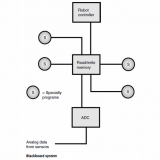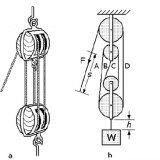TURING TEST – 21143
What is the Turing Test ?
The Turing test is one method that has been used in an attempt to find out if a machine can think. It was invented by logician Alan Turing.
The test is conducted by placing a male human (M), female human (F), and questioner (Q) in three separate rooms. None of the people can see the others. The rooms are soundproof, but each person has a video display terminal. In this way, the people can communicate. The object: Q must find out which person is male and which is female, on the basis of questioning them. But M and F are not required to tell the truth. Both M and F are told in advance that they may lie. The man is encouraged to lie often, and to any extent he wants. It is the man’s job to mislead the questioner into a wrong conclusion. Obviously, this makes Q’s job difficult, but the test is not complete until Q decides which room contains the man, and which contains the woman.
Suppose this test is done 1000 times, and Q is right 480 times and wrong 520 times. What will happen if the man is replaced by a computer, programmed to lie occasionally as does the man? Will Q be right more often, less often, or the same number of times as with the real man in the room?
If the man-computer has a low level of artificial intelligence (AI), then according to Turing’s hypothesis, Q will be correct more often than when a human male is at the terminal, say 700 times out of 1000. If the mancomputer has AI at a level comparable to that of a human male, Q should be right about the same number of times as when the man was at the terminal—say, correct 490 times and wrong 510 times. If the computer has AI at a level higher than that of the human male, then Q ought to bewrong most of the time—say, correct 400 times and mistaken 600 times.
The Turing test has not produced comprehensive results concerning computers with levels of AI higher than the intelligence of a human being, because no such computer has yet been developed.However, computers have been devised with high-level AI relative to specialized skills or tasks, such as board games. Powerful computers have proven equal to human masters at the game of chess, for example.



